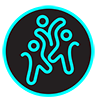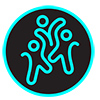This spring, I had a plan to launch an in- class brain health experiment based on the Do CHANGE1 program developed in Europe. Do CHANGE was created to encourage cardiac patients to make simple lifestyle alterations that positively affect longevity. Behavioural scientists (and most parents) will tell you that warnings and threats rarely work when it comes to motivating behaviour change. In point of fact, despite grisly photos and bold warnings on cigarette packages, a 2012 study2 found of the 95% of participants who said they were informed of the dangers of their smoking habit, only 5% reported even attempting to quit. I’d call that a dismal failure.
Do CHANGE, however, takes a different approach. It uses a cell phone app that sends cardiac patients a text that cues them to, “Do something different!” The emphasis is on action, not education. The study proves that taking action is empowering. When patients do just one small thing in a new way, it encourages them to make a further change, and another, and another. Those little changes add up to a huge lifestyle change, one that patients admitted they would not have undertaken based on their doctor’s advice. Patients’ brains reward their first step toward success with a rush of feel- good hormones. That hormonal glow encourages them to repeat the stimulus to get that hormonal rush again.
The COVID-19 crisis has overshadowed my plans for the experiment because suddenly everything has changed! Our brains can no longer take simple things for granted
or operate on autopilot, and that’s a good thing. To survive as individuals and as a species, we have to embrace change (as this magazine says) because it turns out that mental flexibility is a key factor not only in surviving in a coronavirus world, but in healthy aging generally.
There are people in my classes who adamantly refused to use social media or even learn to use a computer. Since the lockdown, however, the desire for human connection has induced many technology naysayers to see computers as a way to remain socially connected in a disconnected world. Necessity is the mother of invention, and within a week of community centre closures, The Great Brain Workout created a new online brain health community where people could continue to exercise and stay in touch. We are all doing things differently. GOOD ON US! Our brains are rewarding our efforts.
Every so often, our thinking needs a bit of a shake-up to get it out of its rut. Unexpected difficulty requires us to attempt previously daunting tasks. Every time we do something in a new way it forces our brains to link new information with old developing new neural pathways. So, in a backhanded way, COVID-19 is a unique opportunity to “Do something different!” Every day is a stretching exercise for our brains as we find new ways to function in this suddenly unfamiliar world.
COVID-19 has forced us all out of our thinking ruts. Once out, go with the flow and let the momentum carry you along.
How far you wish to go is up to you. You’ve always wanted to go to Harvard? Well, Harvard is coming to you. Through Ed-X3 top universities around the world are offering free online courses. And although not quite
the equivalent of Harvard or MIT, I am unabashedly going to plug The Great Brain Workout4 program which is being offered free online (yes, you do need a computer) to all seniors during community centre closures. You can learn a new language for free through Coursera5. You can make new friends and discover new ideas at The Great Brain Circle Virtual Coffee Shop6.
Hard as it may be to see a bright side to this virus situation, there is a small glimmer of light. It is forcing us all to, “Do something different” whether we want to or not,
and that cognitive flexibility statistically enhances our chances of longevity. So, walk into your bathroom and give yourself a big high five in the mirror (because no one else can), for making small changes that broaden your perspective. It’s a brand-new world out there! Go with the flow and allow your brain to have fun finding new ways to do things and new things to do. Those little changes might well add up to a huge positive lifestyle change for which you will be forever grateful.
And now, excuse me! I have to go teach my new online brain fitness class7, something I could never have imagined doing three months ago.
1. https://www.do-change.eu
2. Mannocci, A., Antici, D., Boccia, A., & La, G. T. (2012). Impact of cigarette packages warning labels in relation to tobacco-
smoking dependence and motivation to quit. Epidemiologia e prevenzione, 36(2), 100-107.
3. https://www.edx.orgthegreatbrainworkout@gmail.com 4. https://www.facebook.com/groups/2759869494120633/ 5. https://www.coursera.org
6. thegreatbraincircle@gmail.com
7. https://betterwithfitness.com


